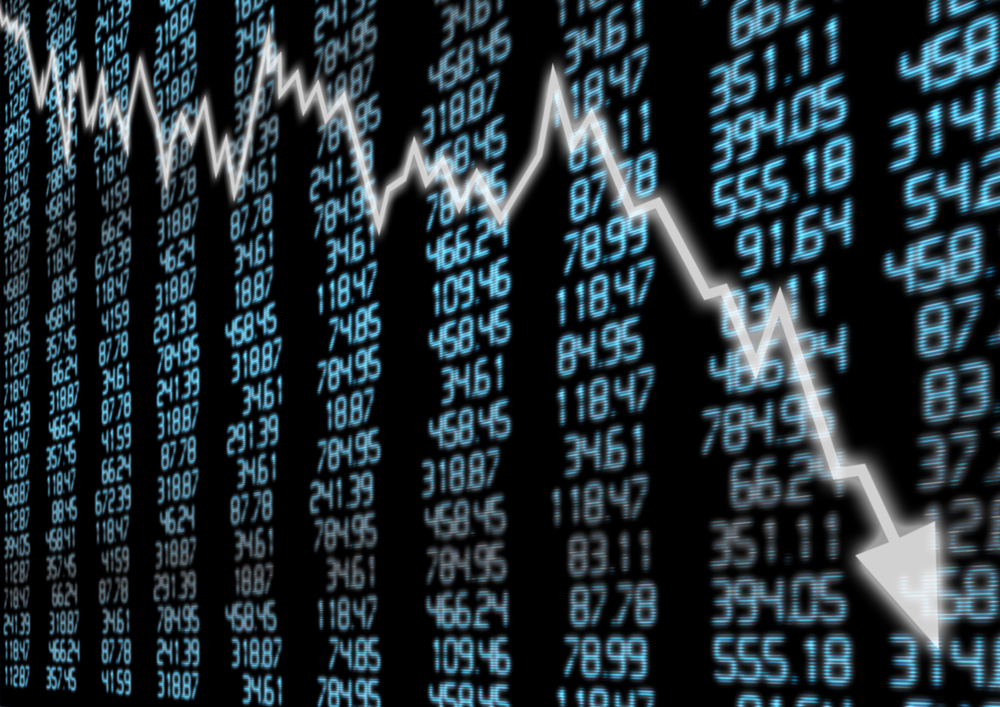Business and Economy
Stocks slip as protests shake Hong Kong, trade woes linger

In midday trading in Europe, Germany’s DAX lost 0.4% to 12,104 and the CAC 40 in France dropped 0.6% to 5,377. Britain’s FTSE 100 also skidded 0.6% to 7,356. U.S. shares were headed for a weak open as the future contract for the Dow Jones industrial average lost 0.2% to 26,017 while that for the S&P 500 also declined 0.2% to 2,882. (Shutterstock photo)
TOKYO — Global shares retreated Wednesday and Hong Kong’s Hang Seng index fell sharply as thousands continued protests against proposed legislation that many city residents fear could further erode the territory’s legal autonomy.
In midday trading in Europe, Germany’s DAX lost 0.4% to 12,104 and the CAC 40 in France dropped 0.6% to 5,377. Britain’s FTSE 100 also skidded 0.6% to 7,356. U.S. shares were headed for a weak open as the future contract for the Dow Jones industrial average lost 0.2% to 26,017 while that for the S&P 500 also declined 0.2% to 2,882.
The Hang Seng lost 1.7% to 27,308.46 as thousands of protesters, most of them young, prevented lawmakers from entering Hong Kong’s government headquarters Wednesday.
The demonstrations snarled traffic and delayed a legislative debate on a bill that would allow criminal suspects in Hong Kong to be sent for trial in mainland China, a proposal that is sharpening fears over growing Chinese control and an erosion of civil liberties in the semiautonomous territory.
The crowds overflowed onto a major downtown road as they overturned barriers and tussled with police, who used multiple rounds of tear gas and threatened to use more forceful measures if necessary.
The proposed legal changes have spooked investors, Stephen Innes of SPI-Asset Management said in a commentary, as it “could have far-reaching consequences for attracting overseas talent and does question the viability of Hong Kong as a leading financial hub, which of course is spooking property investors.”
Japan’s Nikkei 225 index lost 0.4% to 21,129.72 and the Kospi in Seoul shed 0.1% to 2,108.75. The Shanghai Composite index declined 0.6% to 2,909.38. Australia’s S&P ASX 200 edged less than 0.1% lower to 6,543.70.
U.S. markets had advanced for five straight days since the Federal Reserve signalled it is open to cutting interest rates, but weakened on Tuesday amid concerns that the U.S. trade spat with China could be prolonged and hurt growth in the world’s two biggest economies.
U.S. President Donald Trump told reporters Tuesday he expects to meet with Chinese leader Xi Jinping in Osaka at the Group of 20 summit. But he said he’s prepared to expand existing tariffs if a deal with Beijing falls through.
“It’s me, right now, that’s holding up the deal,” Trump said in comments carried by CNBC and other news outlets. “And we’re either going to do a great deal with China or we’re not doing a deal at all.”
The yield on the 10-year Treasury has dropped from around 2.50% in early May to 2.12% Wednesday.
ENERGY: Benchmark U.S. crude lost $1.28 cents to $51.99 per barrel in electronic trading on the New York Mercantile Exchange. It rose 1 cent to $53.27 a barrel on Tuesday. Brent crude oil, the international standard, fell $1.33 to $60.96 a barrel.
CURRENCIES: The dollar fell to 108.36 Japanese yen from 108.52 yen on Friday. The euro slipped to $1.1326 from $1.1330.
——
Matt Ott in Madrid contributed to this report.





















